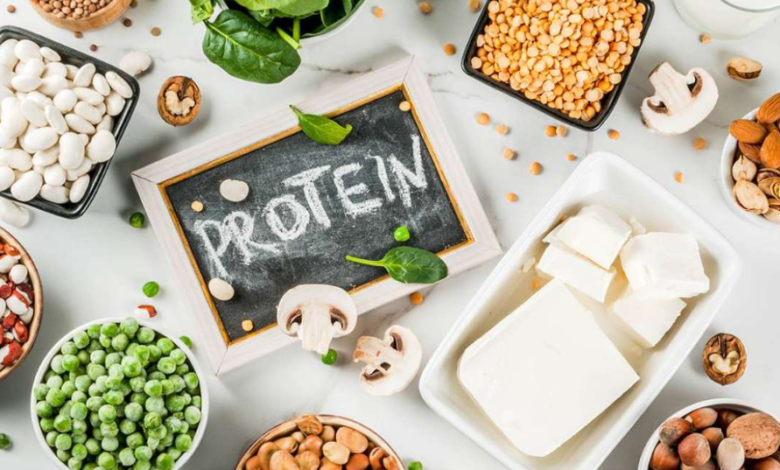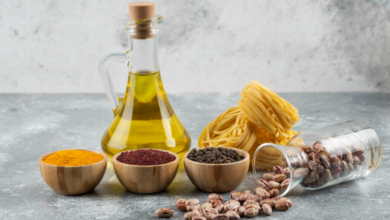Vegan Protein: Benefits, Uses and How to Choose It

In recent years, vegan protein has gained significant attention as an excellent alternative to traditional animal-based protein supplements. Whether you follow a plant-based diet, have dietary restrictions, or simply want a cleaner, greener source of protein, vegan options are becoming better and more versatile than ever. You can explore high-quality vegan and plant-based protein powders here. In this article, we’ll cover the key benefits of vegan protein, how it differs from animal-based protein, the types available, and how to choose the best one for your goals.
Why Choose Vegan Protein? The Benefits Explained
Choosing vegan protein offers a range of benefits beyond just supporting muscle recovery and growth. First, plant-based proteins are often easier to digest and gentler on the stomach, which makes them ideal for individuals with dairy intolerance or sensitivity.
Many vegan formulas use mixes of pea, rice, hemp, or soy protein to create a complete amino acid profile, rivaling whey and casein. Second, from a health perspective, vegan proteins typically come with fewer saturated fats and lower cholesterol load compared to animal-based supplements, which supports cardiovascular health in the long run.
Third, for the environmentally conscious consumer, vegan proteins score high: they often have a lower carbon footprint, use fewer resources, and align with sustainable and ethical nutrition practices. Finally, they can be integrated into a variety of diets—whether vegan, vegetarian, or flexitarian—without compromising on quality and performance.
Together, these benefits make vegan protein a smart choice not only for athletes and gym-goers but also for anyone committed to healthier and more sustainable nutrition.
How Vegan Protein Supports Muscle Growth and Recovery
One of the most common questions is whether vegan protein can truly support muscle growth as effectively as animal-based protein. The answer is yes—when chosen and used properly. Muscle hypertrophy and repair depend on sufficient intake of essential amino acids, especially leucine, and total daily protein intake.
Modern vegan protein blends are designed to deliver a full essential amino acid profile and meet leucine thresholds. Many athletes use vegan protein as the primary post-workout supplement to enhance recovery, reduce muscle soreness, and rebuild muscle tissue. By providing the body with a sustained stream of amino acids, plant-based proteins ensure the muscle repair process is not compromised.
Additionally, vegan proteins can be used throughout the day as snacks or meal replacements, helping maintain protein intake without excess calories or saturated fats. For individuals training for strength, endurance, or general fitness, incorporating vegan protein into a balanced diet and training plan can yield results comparable to traditional sources.
Types of Vegan Protein and What to Look For
Vegan protein powders come in several forms, each with its advantages. The most common are pea protein, rice protein, hemp protein, soy protein, and blended formulas:
- Pea Protein: High in branched-chain amino acids (BCAAs), easily digested and suitable for most diets.
- Rice Protein: Hypoallergenic and good for those with sensitivities; often combined with pea for complete profile.
- Hemp Protein: Includes healthy fats and fiber but slightly lower in leucine, so best as part of a blend.
- Soy Protein: Complete protein with all essential amino acids; a mainstream vegetarian option.
- Blended Proteins: Combine multiple plant sources to ensure a complete profile and higher digestibility.
When choosing a vegan protein powder, here are some key pointers to review:
- Amino acid profile: Ensure it contains all essential amino acids and has a reasonable leucine dose (around 2-3g per serving) for muscle support.
- Protein per serving: Look for 20-30g or more to match comparable whey servings.
- Ingredient list: Fewer additives, sugar, and artificial flavours favour cleaner nutrition.
- Certifications and transparency: Vegan-certified, allergen-free labelling, and tested for purity.
- Digestibility and tolerance: If you have intolerances (e.g., soy, gluten), pick products tailored to your needs.
By paying attention to these factors, you can choose a vegan protein supplement that supports your fitness goals just as effectively as any traditional protein powder.
See also: Top HSA-Eligible Medical Devices to Save on Healthcare Costs
How to Use Vegan Protein in Your Nutrition Plan
Integrating vegan protein into your daily nutrition plan is straightforward. Supplementation should complement—not replace—whole food sources of protein like legumes, tofu, tempeh, quinoa, nuts, and seeds. For best results:
- Post-workout: Consume a serving of vegan protein within 30–60 minutes after training to support recovery and muscle synthesis.
- Between meals: Use vegan protein as a snack to maintain lean mass and manage hunger.
- Meal enhancement: Mix vegan protein into oatmeal, smoothies, or pancakes for extra protein without adding unhealthy ingredients.
- Daily protein targets: Aim for 1.6-2.2g of protein per kilogram of body weight per day if you’re training for muscle growth or performance. Spread intake evenly across meals for optimal absorption.
Remember that hydration, sleep, and overall calorie intake also influence how effectively your body uses the protein. While vegan protein offers great versatility, it works best when embedded within a consistent training and diet programme.
Final Thoughts: Why Vegan Protein Is a Smart Choice
Vegan protein is no longer just a niche product—it’s a mainstream, scientifically supported alternative suitable for athletes, fitness enthusiasts, and anyone seeking cleaner nutrition. With benefits ranging from easier digestion and improved sustainability to full muscle-supporting amino acid profiles, plant-based proteins deliver on performance and ethics.
By selecting the right type, checking the amino acid content, and integrating it into a well-rounded nutrition plan, you can achieve your fitness goals with confidence. Whether you are building muscle, improving recovery, or simply supporting a healthy lifestyle, vegan protein can be a key component of your strategy.




